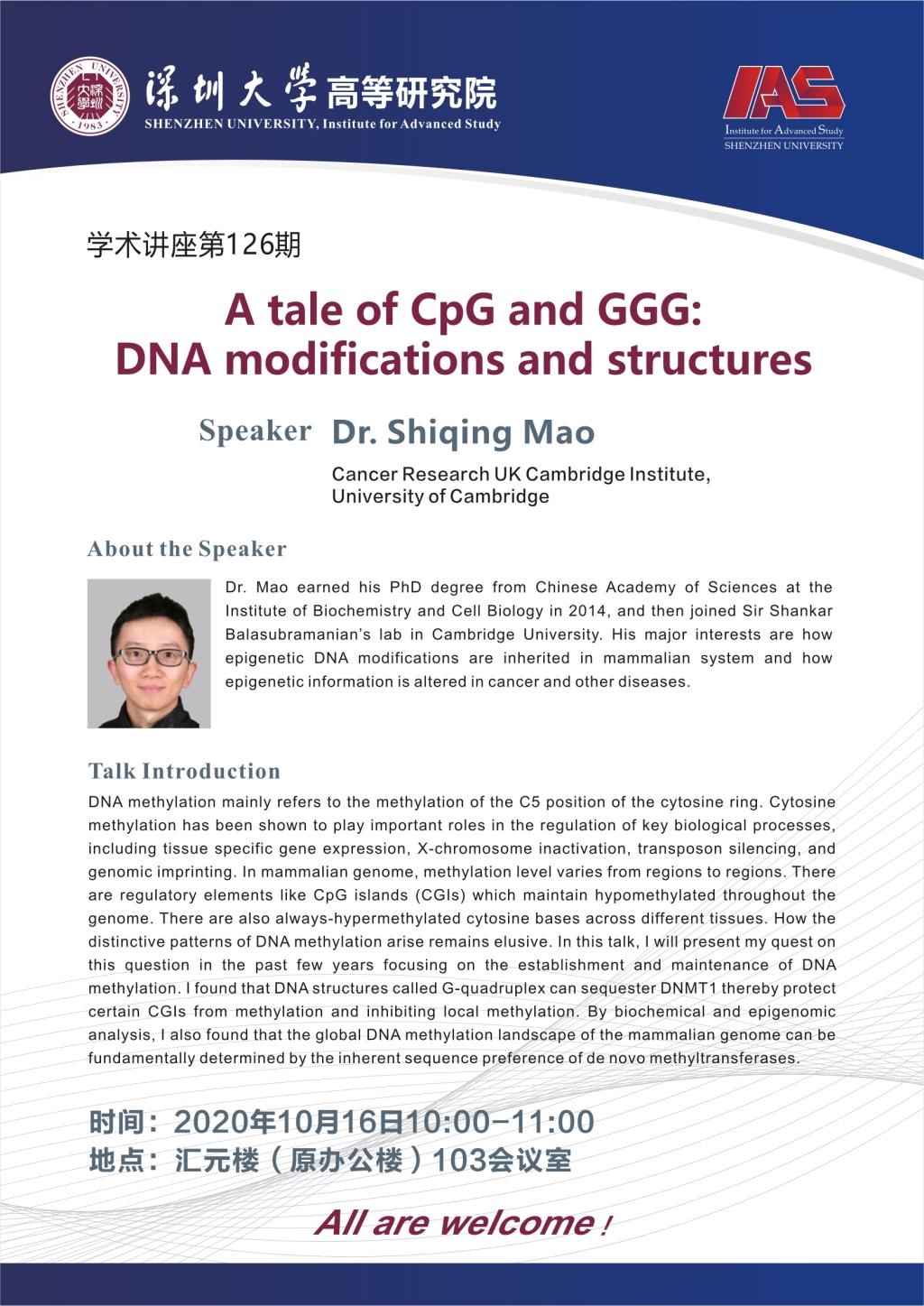A tale of CpG and GGG: DNA modifications and structures
Speaker Dr. Shiqing Mao
Cancer Research UK Cambridge Institute, University of Cambridge
About the Speaker
Dr. Mao earned his PhD degree from Chinese Academy of Sciences at the Institute of Biochemistry and Cell Biology in 2014, and then joined Sir Shankar Balasubramanian’s lab in Cambridge University. His major interests are how epigenetic DNA modifications are inherited in mammalian system and how epigenetic information is altered in cancer and other diseases.
Talk Introduction
DNA methylation mainly refers to the methylation of the C5 position of the cytosine ring. Cytosine methylation has been shown to play important roles in the regulation of key biological processes, including tissue specific gene expression, X-chromosome inactivation, transposon silencing, and genomic imprinting. In mammalian genome, methylation level varies from regions to regions. There are regulatory elements like CpG islands (CGIs) which maintain hypomethylated throughout the genome. There are also always-hypermethylated cytosine bases across different tissues. How the distinctive patterns of DNA methylation arise remains elusive. In this talk, I will present my quest on this question in the past few years focusing on the establishment and maintenance of DNA methylation. I found that DNA structures called G-quadruplex can sequester DNMT1 thereby protect certain CGIs from methylation and inhibiting local methylation. By biochemical and epigenomic analysis, I also found that the global DNA methylation landscape of the mammalian genome can be fundamentally determined by the inherent sequence preference of de novo methyltransferases.
时间:2020年10月16日10:00-11:00
地点:汇元楼(原办公楼)103会议室
All are welcome!



